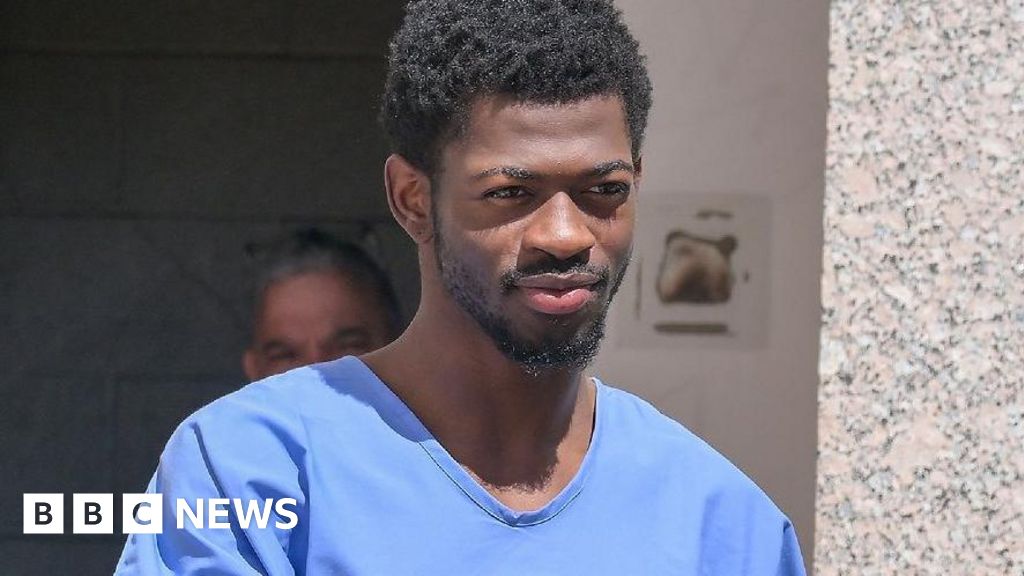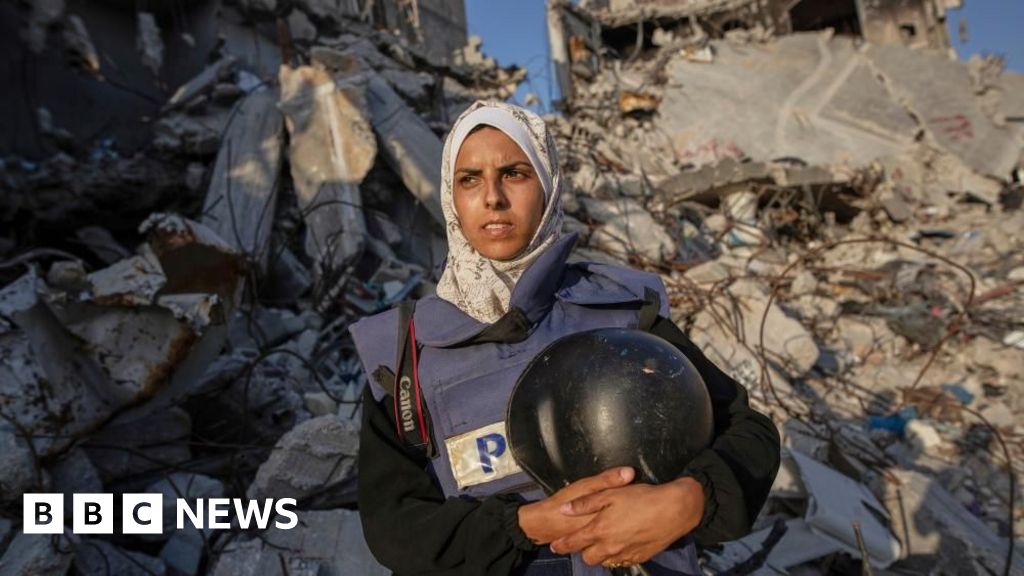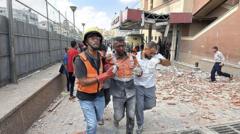The crisis in southern Syria's Druze-majority Suweida province is escalating as troubling claims of a massacre at a hospital emerge. Syrian government forces have been accused of executing patients amid sectarian clashes that erupted over a week ago. The BBC's visit to Suweida's National Hospital revealed a shocking scene, where hospital staff reported that patients were killed in their wards.
As I approached the hospital parking lot, the overwhelming odor of decay assaulted my senses. Decomposing bodies, many still in white plastic bags, lined the area, some exposed to the elements, their conditions gruesome. The ground was slick with blood, painting a vivid and terrifying picture of the violence that had taken place.
"It was a massacre," declared Dr. Wissam Massoud, a neurosurgeon at the facility. He described how troops entered the hospital under the guise of restoring peace, only to murder numerous patients, including the elderly and children. A recent video shared by Dr. Massoud showed horrifying scenes within the hospital, where lifeless bodies were left wrapped in bloodied sheets.
Kiness Abu Motab, a hospital volunteer, emphasized that the victims were targeted purely for being from a minority group within Syria. "What is their crime? Just for being a minority in a democratic country?" he questioned. Local residents echoed similar sentiments, with Osama Malak, an English teacher, expressing deep mistrust of the soldiers, recalling a story of an eight-year-old disabled boy shot in the head while in bed.
All factions involved in the ongoing conflict have leveled accusations of atrocities against one another, and the situation in Suweida is no different. Initial estimates suggest over 300 deaths occurred at the hospital, but these figures remain unverified.
The Syrian defense ministry has acknowledged reports of "shocking violations" by individuals in military attire, with promises of a comprehensive investigation into the events surrounding the hospital's attack. Meanwhile, access to Suweida City remains tightly controlled by government forces, complicating efforts to gather first-hand accounts and evidence of the violence.
As we traversed multiple checkpoints to reach the city, the remnants of battle were evident—burned shops and crushed cars revealed the conflict's ferocity. While various Druze villages have been retaken by government troops, Suweida City itself remains under Druze control in the face of persistent violence from imposed governmental forces.
Before departing the hospital, I encountered eight-year-old Hala Al Khatib, sitting on a bench with her aunt, her face bloodied and bandaged. She had been shot in the head while hiding from gunmen, unaware that both of her parents were among the casualties. The tragic accounts of Hala and others highlight the urgent need for international attention and intervention in the face of escalating violence in Syria.


















